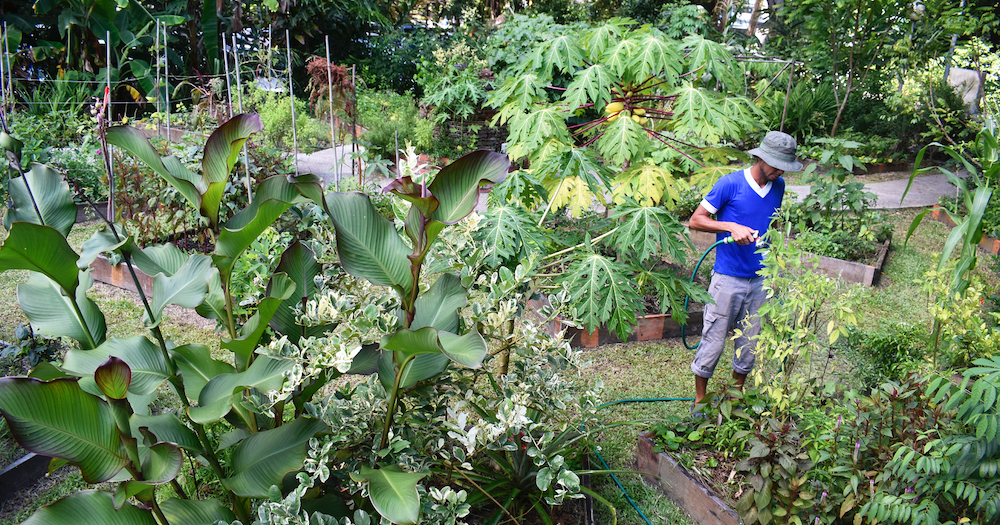DBS announced on June 17 that it will transform a patch of outdoor space at its DBS Asia Hub building in Changi Business Park into a community farm to create opportunities for their employees to become citizen farmers.
'Food forest' to grow edible plants, such as sweet potato and papaya
The bank announced that the community farm, which will be named DBS Food Forest, will sustain over 50 varieties of edible plants and herbs that Singaporeans are familiar with.
Some examples include sweet potato, watercress, papaya, starfruit, calamansi, galangal, lemongrass, and laksa leaves.
The initiative aims to engage its employees to gain access to hands-on farming opportunities at the workplace, while allowing for the outdoor space to be better utilised.
The project is a partnership between DBS and Edible Garden City, a social enterprise that has developed over 240 food gardens in Singapore over the past seven years.
Samuell Ang, Chief Executive Officer of Edible Garden City, highlighted the importance of urban farms:
“Community farms are a vital touchpoint for the public to learn more about farming and to get involved in growing their own food. While they are increasingly common in housing estates and shopping malls, it’s not often you find one in a commercial space. We hope that more businesses and developers will be inspired by DBS’ efforts, and that in the near future we can see similar farms blossoming across commercial properties and business parks.”
Farm-to-table concept at the workplace
The bank is looking to work with the DBS Asia Hub’s in-house cafeteria, where chefs will use harvests from the bank's community garden for meals for the bank's employees.
DBS highlighted that this will reduce the number of trips that suppliers need to make to deliver ingredients to the bank's premises and will help to reduce both costs and carbon emissions from transporting ingredients.
On top of the bank's farm-to-table concept, the DBS Food Forest will also have an on-site composting system, which will turn organic waste generated by the in-house cafeteria into organic fertiliser for the next harvest.
This is an extension of the bank's current practice of using coffee grounds from its in-house cafes as fertiliser for all greenery found in its premises.
DBS Singapore Country Head, Shee Tse Koon, shared that the Covid-19 situation has led to a greater appreciation of the need to optimise the limited space in Singapore to enhance food supply resilience:
“By bringing food production right to the workplace, we hope to get our employees interested enough in urban farming to be involved in one of the more than 1,500 community gardens across our housing estates, or to even try their hand at growing small batches of crops in their own home. Our aim is to spark a virtuous circle, with our employees positively influencing their families and friends, which in turn leads to more edible gardens blooming across the island. We believe that small steps can make a big difference, and we want to spark change by raising the community’s awareness of the amount of effort needed to grow what we eat, and ultimately foster a more mindful approach towards food.”
Additionally, the community farm will aim to conserve resources, such as wood scraps and water.
For example, waste wood chips and shavings will be compacted into ‘bricks’ to line the footpaths, while a water-efficient drip irrigation system will be used in the community farm.
The bank's community farm will be cared for by the bank’s own employees, who will help with weeding, maintenance and harvesting, under the guidance of experts from Edible Garden City.
The bank aims to expand this initiative across its various office locations in Singapore and in the region.
Related stories:
Top image by Edible Garden City
If you like what you read, follow us on Facebook, Instagram, Twitter and Telegram to get the latest updates.
